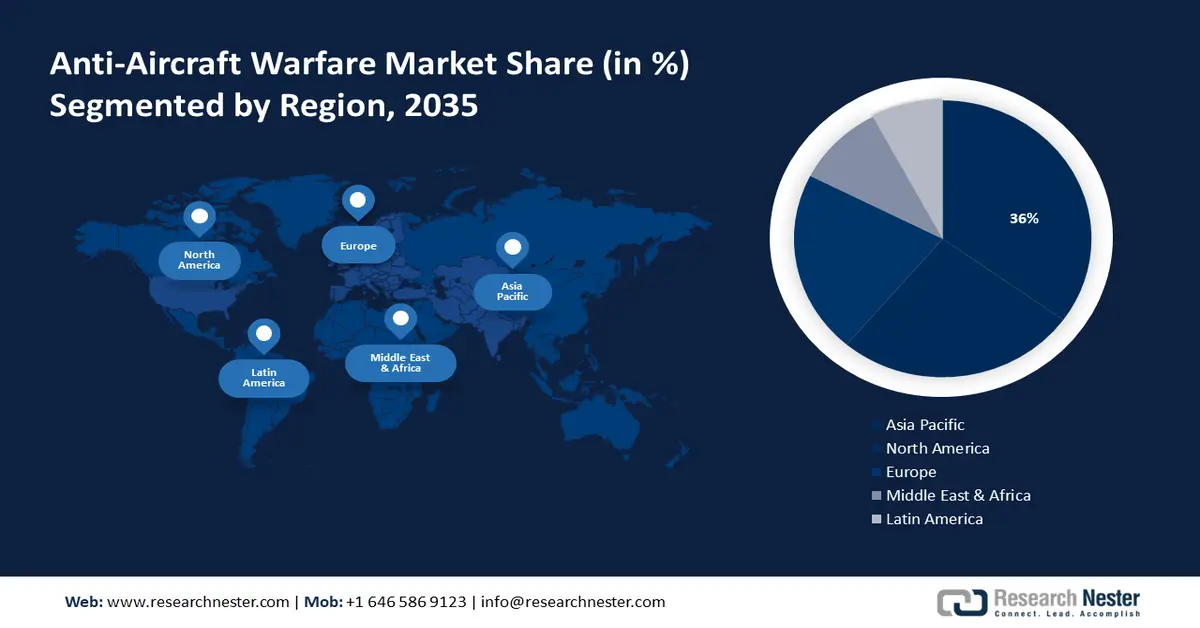Anti-aircraft Warfare Market Regional Analysis:
APAC Market Insights
Asia Pacific industry is estimated to hold largest revenue share of 36% by 2035. The market growth in the region is also expected on account of several factors. Increased defense expenditures by nations such as China, India, and South Korea are driven by a focus on mitigating regional security threats and resolving territorial disputes.
Furthermore, advancements in anti-aircraft warfare technology by regional actors are serving to further stimulate market growth within the Asia-Pacific domain. Consequently, this region is not only the current leader in the market but is also expected to experience the most significant growth trajectory in the foreseeable future. For instance, India announced the acquisition of Igla-S man-portable air defense systems from Russia. This procurement signifies India's ongoing efforts to enhance the combat effectiveness of its armed forces.
North America Market Insights
The North American region will also encounter significant growth for the anti-aircraft warfare market during the forecast period and will hold the second position owing to several reasons. Firstly, growing geopolitical tensions and concerns about potential aerial threats from rogue nations or terrorist organizations are prompting increased defense spending. This translates to investments in upgrading and developing advanced AAW systems. Secondly, the presence of major defense contractors like Lockheed Martin and Raytheon Technologies in North America fosters a robust ecosystem for research, development, and production of cutting-edge AAW technology. This domestic expertise allows for quicker innovation and easier integration of these advancements into existing defense systems. Finally, North America's role in fostering international alliances also contributes to market growth. By offering advanced AAW systems to allies, North American companies not only expand their market reach but also strengthen global security partnerships. These combined factors position North America as a key driver and leading shareholder in the AAW market for the foreseeable future.
The U.S. Marine Corps is undergoing a major modernization effort (Force Design 2030) to adapt to a shifting security landscape, particularly in the Indo-Pacific region. This includes the development of the Medium-Range Intercept Capability (MRIC), a new missile system designed to fill a critical air defense gap against various threats, as highlighted by Lt. Col. Matthew Beck. MRIC's rapid development signifies the Corps' focus on enhancing its organic capabilities for independent operations in contested maritime environments.


